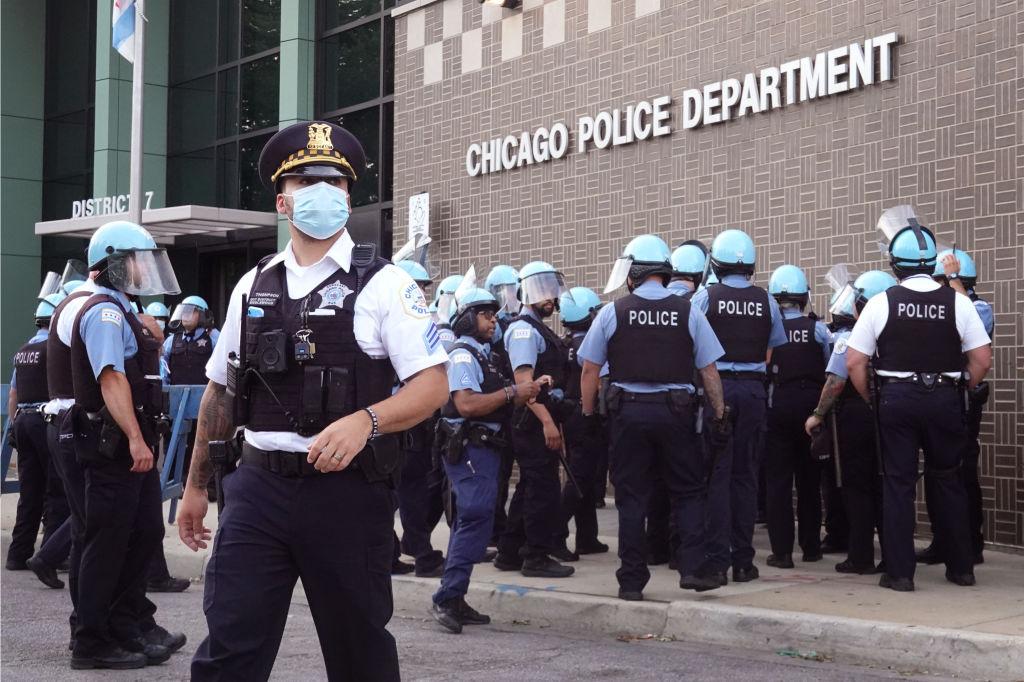CHICAGO—Carrie Steiner’s mental health clinic in Lombard, a suburban town just west of Chicago, has seen a surge of police officers from Chicago Police Department and surrounding suburban police agencies. She added five new therapists in the last 18 months, each seeing 25 to 30 clients every week.
A new source of stress for Chicago police is the prolonged working hours, Steiner said. Since last summer, they have been repeatedly asked to work 12-hour shifts with no days off to cope with the civil unrest and rising crime. Many officers she knows sleep four to five hours a day—that is, if they get to fall asleep at all.





